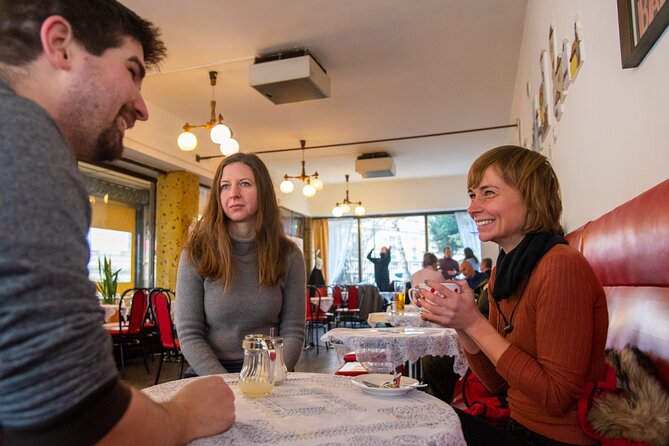Hungary today stands at a pivotal moment, poised to confront its complex past and navigate an uncertain future. The nation’s political landscape, dominated by the Fidesz party, has sparked vigorous debates about the nature of democracy and the boundaries of media freedom. Simultaneously, Hungary’s cultural vibrancy and economic growth coexist with pressing social inequalities and healthcare accessibility issues. As Hungarians grapple with these multifaceted challenges, a no-taboo conversation emerges, inviting a deeper examination of the country’s identity, values, and aspirations. The path forward may not be clear, but the willingness to confront these complexities head-on could shape Hungary’s resilient future.
Key Points

• Hungary’s political landscape is dominated by the conservative Fidesz party, leading to concerns about democratic backsliding and rule of law issues.
• The country’s economic challenges include income inequality, high government debt, and declining industrial competitiveness, despite recent growth.
• Social issues such as uneven healthcare access and the treatment of vulnerable populations, including minorities, continue to draw international criticism.
• Hungary’s rich cultural heritage is reflected in its vibrant arts scene, architectural marvels, and renowned cuisine, which blends traditional and contemporary influences.
• As a strategic location in Central Europe, Hungary offers diverse tourism experiences that showcase its natural beauty, thermal spas, and historical attractions.
Historical Significance of Hungary

Hungary has a rich and storied history, with over a millennium of influence on the cultural and political landscape of Central Europe.
From its origins as a nomadic tribal confederation in the 9th century to its subsequent hotel as a powerful medieval kingdom, the country has played a pivotal role in shaping the region’s trajectory.
During the Middle Ages, Hungary was a major force, with its kings exerting control over vast territories and leading military campaigns that left a lasting mark on the region.
The country’s strategic location at the crossroads of Eastern and Western Europe has also made it a hub of cultural exchange, with a rich tradition of art, architecture, and literature that continues to captivate visitors today.
You can also read our reviews of more tours and experiences in Budapest.
Cultural Diversity and Traditions
Hungary’s rich cultural tapestry is woven with diverse traditions that have endured for centuries, reflecting the nation’s unique heritage and the influences of its neighboring regions.
From the vibrant folk music and dance of the Romani people to the intricate porcelain art of Herend, Hungary’s cultural diversity is on full display.
The country’s historic architecture, from the stunning Budapest skyline to the charming villages, showcases a blend of Gothic, Baroque, and Renaissance styles.
Culinary traditions, such as the iconic goulash and the delectable Tokaji wine, have become synonymous with Hungarian identity.
Despite the challenges of modernity, Hungarians have steadfastly preserved their traditions, ensuring that the nation’s cultural heritage remains a source of pride and identity for generations to come.
Political Landscape and Controversies

In recent years, the political landscape of Hungary has been marked by ongoing controversies and polarizing debates, with the conservative Fidesz party and its leader, Prime Minister Viktor Orbán, at the center of much of the discourse.
Orbán’s government has faced criticism for its perceived authoritarian tendencies, including crackdowns on media freedom, restrictions on civil society organizations, and changes to the country’s constitution that have consolidated power.
The European Union has also raised concerns about the state of the rule of law and democratic institutions in Hungary.
These issues continue to be hotly debated, both within Hungary and internationally, as the country navigates its political future.
Economic Challenges and Opportunities
Despite a period of sustained economic growth in recent years, Hungary continues to grapple with a range of economic challenges, from income inequality and high government debt to concerns over the long-term competitiveness of its industries. While the country has experienced strong GDP expansion, the benefits have not been evenly distributed, leading to disparities in wealth and living standards. The government’s efforts to reduce debt levels and boost productivity have had mixed results, with ongoing debates over the best policy approaches. At the same time, Hungary is working to capitalize on its strengths, such as its skilled workforce and strategic location, to attract investment and foster new opportunities for economic development.
| Economic Challenges | Economic Opportunities |
|---|---|
| Income inequality | Skilled workforce |
| High government debt | Strategic geographic location |
| Declining industrial competitiveness | Attracting foreign investment |
| Uneven distribution of economic growth | Expanding export markets |
| Debates over policy approaches | Leveraging EU membership |
Social Issues and Perspectives
While Hungary has made significant progress in recent decades, the country continues to grapple with a range of complex social issues that have prompted ongoing debate and scrutiny.
Uneven access to quality healthcare, the challenges faced by vulnerable populations, and discussions around cultural identity and diversity remain at the forefront of national discourse.
Socioeconomic inequality, particularly in rural areas, has been a persistent concern, with efforts to address disparities in education, housing, and employment opportunities.
Plus, the country’s stance on immigration and integration of minority groups has drawn international attention and criticism.
As Hungary navigates these sensitive social dynamics, policymakers and citizens alike seek to balance economic development with social cohesion and inclusive progress.
- Budapest Danube Cruise With Buffet Dinner, Performances and Music
- Budapest Evening Sightseeing Cruise and Unlimited Proseccos
- Half-Day Wine Tasting Tour in Etyek Wine Country Near Budapest
- Budapest Danube River Candlelit Dinner Cruise With Live Music
- Guided Tours in Budapest on Monsteroller E-Scooter
- Budapest All in One Walking Tour With Strudel Stop
Architectural and Artistic Influences
Hungary’s rich architectural and artistic heritage has significantly shaped the country’s cultural identity, seen in the diverse mix of influences that have left an indelible mark on its built environment and creative expressions.
From the grand Baroque structures of Budapest to the striking modernist designs scattered throughout the nation, Hungarian architecture reflects centuries of diverse cultural interactions.
Similarly, the country’s vibrant arts scene draws inspiration from its tumultuous history, traditional folk motifs, and contemporary global trends.
Whether exploring the masterpieces of renowned Hungarian painters and sculptors or marveling at the unique handicrafts produced by skilled artisans, visitors can gain a deep appreciation for the country’s multifaceted artistic traditions.
Cuisine and Culinary Delights
Hungarian cuisine is renowned for its bold flavors, innovative use of ingredients, and deep-rooted traditions that have been passed down through generations.
From the hearty goulash stew to the decadent Dobos torte, the country’s culinary landscape reflects a vibrant cultural heritage and diverse regional influences.
Paprika, a key ingredient in many Hungarian dishes, lends a distinct smoky and sweet flavor, while the abundance of fresh produce, dairy, and meats contributes to the richness and complexity of the cuisine.
Beyond the iconic dishes, Hungary’s food scene also embraces modern interpretations, blending traditional techniques with contemporary culinary trends.
Whether exploring the lively street food markets or fine dining establishments, visitors can enjoy the country’s vibrant and ever-evolving gastronomic culture.
Tourism and Travel Experiences
Travelers visiting Hungary often discover a wealth of captivating experiences that showcase the country’s rich cultural heritage, stunning natural landscapes, and vibrant urban centers.
From exploring the majestic Buda Castle and strolling along the banks of the Danube River in Budapest to hiking through the serene Bükk Mountains and immersing oneself in the thermal spa traditions, the nation offers an array of enthralling tourism opportunities.
Whether seeking to explore the country’s history, indulge in its culinary delights, or simply enjoy the breathtaking scenery, Hungary presents a diverse range of activities and attractions that cater to a wide variety of traveler interests and preferences.
Recap
Hungary’s journey continues to captivate. Its rich history, cultural diversity, and economic progress coexist with political debates and social challenges.
As Hungarians navigate this complex landscape, open and nuanced dialogues about their identity, values, and aspirations will be crucial in shaping a resilient future for the nation.
The country’s architectural, artistic, and culinary landscapes offer a vibrant tapestry for locals and visitors alike to explore.
More Tour Reviews in Budapest
- Rudas Bistro Premium Brunch
- Budapest Buda Side Tour: Conquer the Castle
- Private Budapest Sightseeing Tour: Royal Castle, Heroes Square, Chain Bridge
- Private Transfer From Budapest to Split, Hotel-To-Hotel, English-Speaking Driver
- 7 Days Balkan Tour to Historic Croatia and Bosnia Herzegovina
- Explore Budapest Customisable City Game for Groups
Not for you? Here's more things to do in Budapest we have recnetly reviewed
- 2 Best Canoe And Kayak Experiences In Budapest
- 4 Best Craft Beer Tours And Tastings In Budapest
- 8 Best Christmas Experiences In Budapest
- 24 Best Dining Experiences In Budapest
- 20 Best Full-Day Tours In Budapest
- Best 3 Day Tours In Budapest
- 3 Best 4 Day Tours In Budapest
- 20 Best Massage And Relaxation Services In Budapest
- 20 Best Photography Experiences In Budapest
- 13 Best Coffee Tours And Tastings In Budapest
- 23 Best Dinner Tours In Budapest
- 25 Best Cruises And Boat Tours In Budapest
